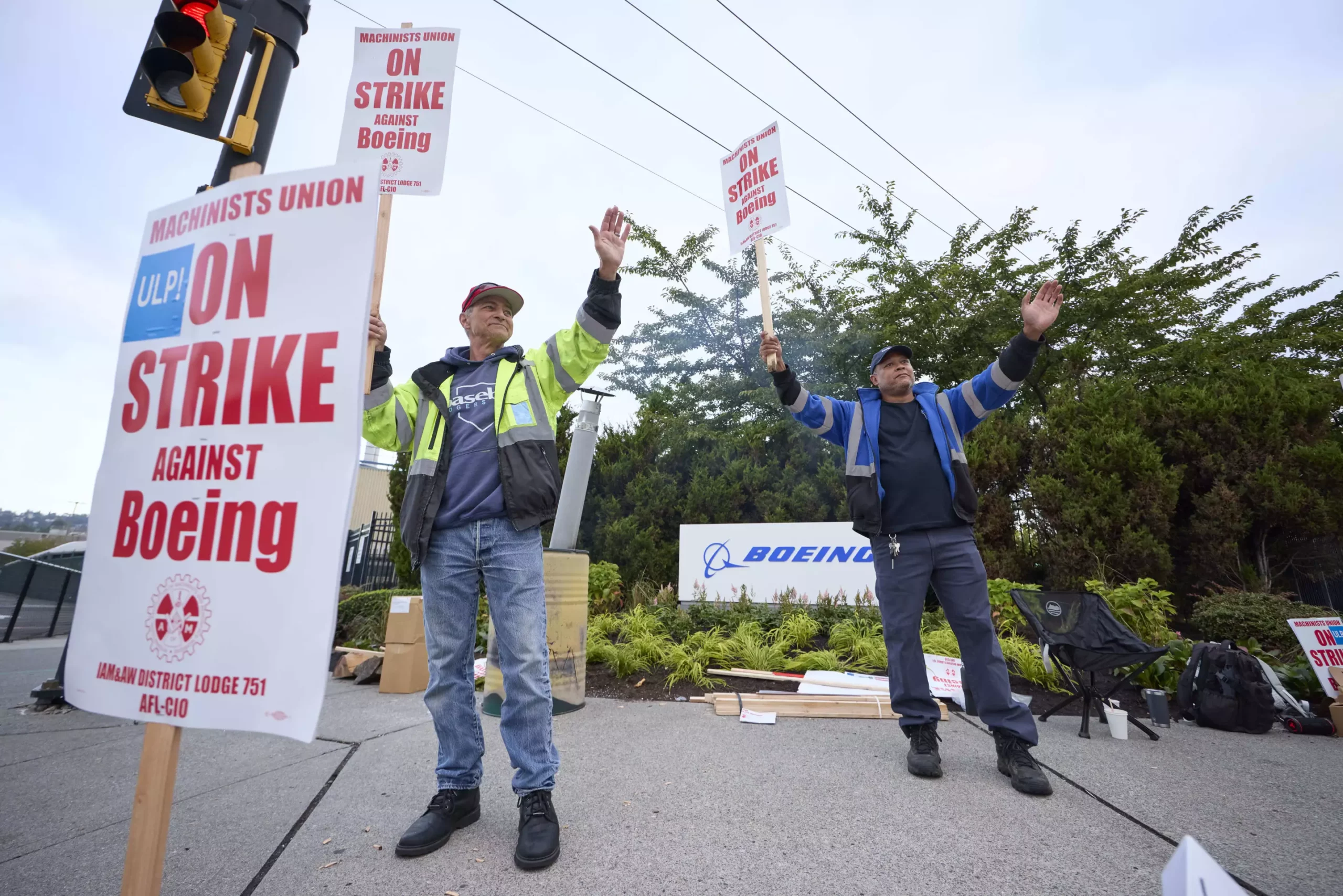The recent strike by Boeing’s blue-collar workers shines a spotlight on the growing tension between labor and management within major corporations, particularly in sectors reliant on skilled labor. With 33,000 machinists walking off the job, prompted by the rejection of a proposed 25% wage increase over four years, the ramifications of their decision reverberate far beyond the factory floors.
The contract rejection stemmed from a profound sense of discontent among workers over inadequate wage adjustments in the face of rising living costs. Despite Boeing’s offer promising substantial wage increases, workers perceive this as insufficient when juxtaposed with galloping inflation and the unprecedented hikes in local housing prices in the Pacific Northwest. Individual accounts from employees reveal that many feel a stark disconnect between current economic realities and the terms being offered—highlighting the crucial importance of broader economic contextualization in labor negotiations.
John Olson, a seasoned toolmaker with over six years of service at Boeing, noted that his salary rose only slightly over that period and expressed frustration over wage calculations based on outdated figures. Workers like Olson see this strike not merely as a fight for better wages, but as a challenge for recognition in a company they believe is struggling to appreciate their contributions amidst internal chaos and financial discrepancies.
The implications of the strike for Boeing are severe. Falling stock prices reflect investor concerns amidst already staggering financial losses that have exceeded $25 billion over the past six years. With a current debt exceeding $60 billion, Boeing’s financial stability hangs in the balance. Any interruption in production could severely impact cash flow, especially since most payments for aircraft are made upon delivery, meaning that a stoppage could have immediate financial repercussions.
Boeing’s CEO, Kelly Ortberg, who recently stepped into his role, faces intense scrutiny. Less than a month into his tenure, he is tasked with salvaging operations and restoring trust among both employees and consumers. His statements prior to the strike emphasized that striking would jeopardize recovery efforts, illustrating the company’s precarious position in the aerospace market, particularly as it competes with European rival Airbus.
The rejection of the proposed contract and the ensuing strike highlight pivotal questions about workers’ rights and corporate accountability. The International Association of Machinists and Aerospace Workers (IAM) has an opportunity to leverage this moment to bolster its position and demand not just better wages but also more respect and recognition for the sacrifices its members have made through concessions over the past decade. The contract contained insufficient increases in company contributions to retirement accounts and failed to address demands for a return to traditional pensions, revealing a broader trend of dissatisfaction with retirement security in an era when economic stability is often hard-won.
Union leader Jon Holden’s comments underline an ongoing struggle for dignity and fairness within a corporate structure that often seems more focused on bottom-line figures than on the workforce that makes its operations possible. The vocal protestations outside Boeing’s factories—expressed through creative signage and resonant anthems—signal a need for a narrative change, where labor is accorded the respect it deserves in shaping a successful and sustainable business model.
The fallout from the strike isn’t limited to Boeing alone. The aerospace industry’s reliance on a skilled workforce means that the implications of strikes and labor disputes can ripple across the sector, affecting suppliers, manufacturers, and ultimately consumers. The last major strike in 2008 resulted in a loss of about $100 million in revenue per day for Boeing—a daunting reminder of the stakes involved.
The landscape of labor relations is shifting, propelled by a new generation of workers who demand transparency, respect, and fair compensation. Companies must engage with their workforce to craft solutions that address underlying grievances, rather than simply delivering contractual offers deemed to be in their favor. For Boeing, the path ahead involves critical negotiations that reconcile the needs of a committed workforce with the realities of corporate performance and sustainability.
As the strike unfolds, it serves as a critical reminder of the importance of addressing employee concerns not only through financial means but also by fostering a workplace culture rooted in respect and mutual understanding. The stakes are high, and the outcome will likely shape the future operations of Boeing and possibly the entire aerospace sector.


Leave a Reply